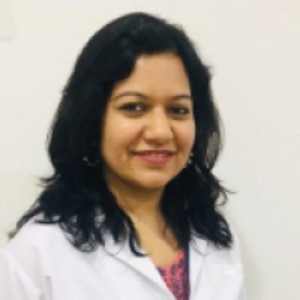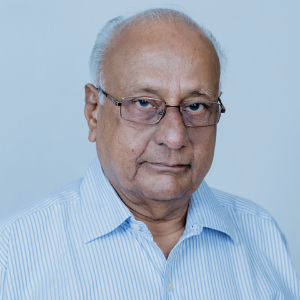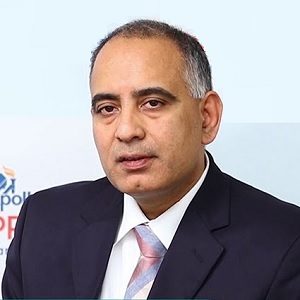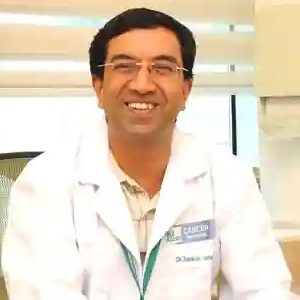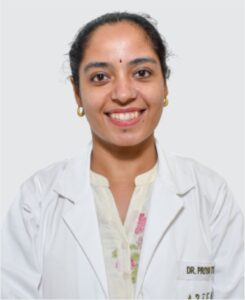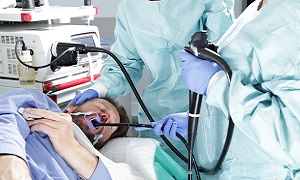Best Doctors in India for Kaposi Sarcoma Treatment
- Medical Oncologist, Gurugram, India
- Over 20 years’ experience
Profile Highlights:
- Dr. Randeep Singh has trained extensively in managing cancer patients at the prestigious Tata Memorial Hospital, Mumbai.
- After spending over 20 years in this field, he has a vast experience in breast, lung, and gastrointestinal cancers.
- Throughout his career, Dr. Randeep Singh has had over 40 publications in national and international journals.
- He has also attended and presented various scientific papers in national and international journals.
- Surgical Oncologist, Gurugram, India
- Over 10 years’ experience
Profile Highlights:
- Dr. Shilpi Sharma is a highly experienced surgeon and oncologist who has previously worked in prestigious institutions such as Tata Memorial Hospital, and National Cancer Institute.
- Throughout her career, she has conducted various high-quality research in the field of head and neck cancers. Dr. Shilpi Sharma has also been part of various randomized and nonrandomized trials and has also been involved in clinical and translational research.
- She is also a member of ICMR guideline committee which formulated the ICMR guidelines on tongue cancers.
- Medical Oncologist, Chennai, India
- Over 40 years’ experience
Profile Highlights:
- Dr. Bellarmine Vincent Lawrence is a well-known Medical Oncologist in South India with a specialization in the treatment of breast cancers.
- He provides overall both pre and post-operative treatment of breast cancer that includes diagnostic, therapeutic as well as palliative care.
- He also provides services for other types of cancers including blood cancer and does procedures like Chemotherapy for the treatment and biopsies for the detection of cancer.
- Medical Oncologist and BMT Specialist, Chennai, India
- Over 25 years’ experience
Profile Highlights:
- Dr. T. Raja is a Medical Oncologist from the Tamil Nadu state with 25 years of know-how in this field.
- He has proficiency in Cancer Screening, Chemotherapy, PICC Line Insertion, Bone Marrow Transplantation, Stem Cell Transplantation, Pap collection, lymphoma, Renal Cell Cancer management, and Head and Neck Tumor.
- Dr. Raja was the Principal Investigator for several clinical studies, a published author for journals, and a teacher.
- Medical Oncologist, Chennai, India
- Over 28 years’ experience
Profile Highlights:
- Dr. Sankar Srinivasan is one of the top Medical Oncologists in India with proficiency in cancer management for about 28 years.
- He got certified in Internal Medicine, Medical Oncology, and Hematology from American Board to enhance his skills.
- Dr. Srinivasan is placed in the best 10% of the Hematologists boards.
- He is an active member of several International Medical Association Boards.
- Oncologist
- Over 10 Years' Experience
Profile Highlights:
- Dr. Priya Tiwari is a renowned Medical Oncologist who is currently serving as the Head of Medical Oncology (Unit II) at Artemis Hospital, in Gurgaon.
- With comprehensive training in Medical Oncology and Internal Medicine at the prestigious All India Institute of Medical Sciences (AIIMS), Dr. Tiwari advocates for a holistic approach to patient care, emphasizing not just treatment but overall well-being.
- Clinically, Dr. Tiwari treats a broad range of oncological conditions, including brain tumours, soft tissue sarcoma, bone sarcoma, lung cancer, genitourinary cancers, gynecological cancers, colon-rectal cancer, head and neck cancers, thyroid cancer, lymphomas etc.
- Dr. Priya Tiwari is also a gold medalist in MBBS and has published many articles in prestigious publications. Additionally, she has conducted substantial research and made major contributions in the field of medical oncology.
- Being involved in many professional associations such as the Immuno-oncology Society of India, American Society of Clinical Oncology (ASCO), and European Society for Medical Oncology (ESMO), Dr. Tiwari remains up to date with the latest developments in her area of expertise.
Best Hospitals in India for Kaposi Sarcoma Treatment
CARE Hospitals, Hyderabad
- City: Hyderabad, India
Hospital Highlights:
- CARE Hospitals were established in the year 2000, by CARE Group.
- The multispecialty hospital has 435 beds, including 120 critical care beds, with an annual inflow of 180000 outpatients and 16,000 in-patients.
- The hospital provides specialty medical services in Cardiology, Cardiothoracic Surgery, Pediatric Cardiology, Pediatric Cardiothoracic Surgery, Neurology, Neurosurgery, Nephrology, and Urology.
- The hospital has the first dual source, 128 slice CT scanner (for high precision cardiac imaging) – the first of its kind in south India.
- The hospital offers a wide range of accommodation facilities for the convenience of its varied patient base, ranging from general wards to super deluxe rooms.
Fortis Hiranandani Hospital, Mumbai
- City: Mumbai, India
Hospital Highlights:
- Fortis Hiranandani hospital was established in 2007.
- The hospital is an advanced tertiary care, multi-specialty hospital equipped with 149 beds.
- The hospital is equipped with a super ICU to provide emergency medical care to critically ill patients.
- The hospital is NABH accredited.
- The critical care facility in the hospital is augmented with the state-of-the-art facilities that facilitate speedier diagnosis and efficient monitoring.
- The hospital provides specialty medical services in cardiology, orthopedic science, pediatric science, neurology, diabetic care, urology, nephrology, ENT, obstetrics, gynecology, cosmetic surgery, bariatric surgery, neuro and spine care.
Fortis Hospital, Anandpur, Kolkata
- City: Kolkata, India
Hospital Highlights:
- Fortis Hospital, Anandapur, Kolkata is a world-class super-speciality equipped with the latest technologies in the medical world.
- The hospital is NABH accredited.
- This state-of-the-art facility specializes in cardiology and cardiac surgery, urology, nephrology, neurosciences, orthopaedics, digestive care, emergency care and critical care.
- The hospital, governed by integrated Building Management System (IBMS), has a pneumatic chute system, for quick vertical and horizontal transportation between floors, facilitating speedy transfer of patient specimens, documents, reports, and medicines to the concerned departments.
- The hospital also has a nephrology department with over 28 advanced dialysis units.
Fortis Hospital Banerghatta, Bengaluru
- City: Bengaluru, India
Hospital Highlights:
- Fortis Hospital Bannerghatta, Bengaluru was established in 2006.
- The hospital is a 276 bedded multi-specialty tertiary care facility.
- The hospital specializes in cutting-edge medical technology and dedicated patient care services.
- The hospital is equipped with state-of-the-art technologies like trans-radial angioplasty, trans-abdominal cardiac surgery, and computerized TKR navigation surgery.
- The hospital provides specialty medical services in cardiology, cardiac surgery, orthopedics, neurology, neuro-surgery, GI, and Minimal Access Surgery (MAS).
Gleneagles Global Hospital, Parel, Mumbai
- City: Mumbai, India
Hospital Highlights:
- Gleneagles Global Hospital The 450-bed facility comprises of 17-stories, housing state-of-the-art infrastructure, and advanced medical care facilities.
- The hospital offers end-to-end clinical, surgical, and diagnostic services. It is equipped with a team of eminent medical professionals aided by qualified nurses and medical staff
- The Hospital offers advanced Endoscopic procedures, Hepatobiliary and Liver Surgeries, Surgical and Medical Gastroenterology, Bariatric Surgery, and Robotic surgery.
- The hospital is a center of excellence for Orthopedics, Joint Replacement, Knee Replacement, and Hip Replacement surgery.
Jaypee Hospital, Noida
- City: Noida, India
Hospital Highlights:
- Jaypee Hospital is the flagship hospital of the Jaypee Group.
- This hospital has commissioned 525 beds in the first phase and has been planned and designed as a 1200 bedded multi-specialty facility.
- It holds the accreditation of the NABH and NABL.
- The hospital has state-of-the-art infrastructure equipped with the latest technologies and modern equipment like 64 Slice PET CT, Dual Head 6 Slice SPECT CT, Gamma Camera, and Da Vinci Robotic Surgery for comprehensive robotic surgical solutions.
- It has special Centers dedicated to the major specialties to provide hassle-free and high-quality clinical care.
Manipal Hospital, Dwarka, Delhi
- City: New Delhi, India
Hospital Highlights:
- Manipal Hospitals, Dwarka, is a super-specialty hospital in Dwarka, New Delhi, which is a part of Manipal Hospitals Group.
- The hospital aims to provide the best treatment on par with international standards at a fraction of the cost.
- Equipped with 380 beds, the hospital is also one of the new age hospitals which are equipped fully with state-of-the-art infrastructure, cutting-edge technology as well as the latest and advanced clinical practices. The hospital also has 13 modular Operation theatres with 118 beds which are solely meant for critical care.
- The hospital comprises internationally acclaimed doctors and highly professional and experienced hospital and medical staff who are able to provide preventive, therapeutic, and diagnostic services all under one roof.
Pushpawati Singhania Hospital & Research Institute, New Delhi
- City: New Delhi, India
Hospital Highlights:
- Established in 1996, Pushpawati Singhania Research Institute is one of the top hospitals in the NCR region, as well as one of the top facilities in India for gastroenterology. The hospital is one of South Asia’s first institutes in medical and surgical treatment for diseases related to digestion.
- The hospital is equipped with state-of-the art facilities coupled with the latest equipment as well as renowned consultants from various parts of India as well as other parts of the world.
W Pratiksha Hospital, Gurgaon
- City: Gurugram, India
Hospital Highlights:
- W Pratiksha Hospital, Gurugram, is one of the best hospitals in the NCR region. It is also a top hospital in India for IVF. Since its inception, the hospital has performed over 5500 successful IVFs. The hospital also specializes in gynecology.
- With over 20 years of experience in providing quality healthcare, the hospital is known as one of the most trusted and valued health providers in India.
- Equipped with world-class medical facilities and advanced technology, the hospital’s doctors and clinicians also have a track record of delivering excellent results. The hospital is also known for focusing on preventive well-being as much as on curative treatment.
- The hospital has earned the trust of its patients, by providing the best available treatments at affordable costs.
Narayana Superspeciality Hospital, Gurugram
- City: Gurugram, India
Hospital Highlights:
- Situated near DLF Cyber City, Gurugram, Narayana Superspecialty Hospital is one of the top medical facilities in the Delhi NCR region, catering to the needs of the people. Known for its commitment to quality medical care and patient service, the hospital is a state-of-the-art facility with planned and well-equipped sections, which includes a spacious OPD area as well as comfortable patient rooms.
- It is the closest super-specialty hospital from Indira Gandhi International Airport towards Gurugram, and also the nearest super specialty hospital from DLF Cyber City. It is also close to major residential areas in Gurugram.
- It is part of the renowned Narayana Health Group. Established in 2000, by Dr. Devi Shetty, a renowned cardiac surgeon, it has grown to be one fo India’s leading healthcare groups.
Kaposi’s Sarcoma
Kaposi’s sarcoma is a cancer in which tumors with tiny blood vessels grow below the skin’s surface. They can also grow in other parts such as inside the mouth, the lymph nodes, the lungs, the liver, and the digestive tract.
Types
Kaposi’s sarcoma is generally of four types:
Epidemic or AIDS-associated- This type of sarcoma is usually the most common kind of sarcoma. It affects people suffering from HIV.
Immunosuppressive- This type of sarcoma is common among people who have taken organ transplants as well as drugs to slow down their immune system.
Classic- This type is generally common among older men in the Mediterranean, Middle Eastern, or Eastern European regions.
Endemic- This type is common among children and young people in Africa.
Symptoms
Depending on which part of your body is affected by the disease, you can show a number of symptoms.
Generally, the most visible signs are lesions on your skin. They are red or purple on light skin and bluish, brownish, or black on dark skin. They are not itchy and don’t cause any pain as well.
If Kaposi’s sarcoma shows up on your mouth, then you might have trouble eating and swallowing food.
If it occurs in your lungs, then the lesions can cause serious coughing or shortness of breath.
If Kaposi’s sarcoma occurs in the stomach, then the lesions in the stomach can cause bleeding and blockages.
Some other symptoms include:
- An upset stomach
- Vomiting
- Belly pain
- Bloody or black stool
- Anemia
Causes
Kaposi’s sarcoma is caused by the herpes virus HHV-8, which is also known as the Kaposi’s sarcoma-related herpesvirus. It spreads mainly through saliva, during sexual contact, or in interactions between a mother and a child.
Sometimes, people with a healthy immunes system can also carry the virus without any problem. However, it can trigger cancer in people having a weakened immune system.
Kaposi’s sarcoma is also around eight times more common in men than women.
Diagnosis
In order to diagnose Kaposi’s sarcoma, your doctor just needs to look at the skin. To confirm it, they will likely take a sample of tissue from a spot and look at it using a microscope. This process is called a biopsy. Other tests may also be required, such as:
Fecal occult blood test
Endoscopy/colonoscopy
Imaging tests
Bronchoscopy
Treatment
Treatment generally varies, depending on how many lesions you have, and how big they are, as well as how well your immune system is working.
In the majority of cases, antiretroviral therapy is the most effective way to treat Kaposi’s sarcoma. It might even clear up skin lesions.
If the virus is affecting many areas of your body, then you might need to undergo radiation therapy. The method involves a machine which directions radiation towards the lesions on your skin. This can kill the cancer cells or keep them from growing.
If your cancer has spread, you might need chemotherapy, which involves the use of powerful drugs to kill cancer cells. It is to be noted that chemotherapy can have multiple side effects, such as fatigue, vomiting, and hair loss.
Immunotherapy is another type of effective treatment, which works by boosting your immune system.


